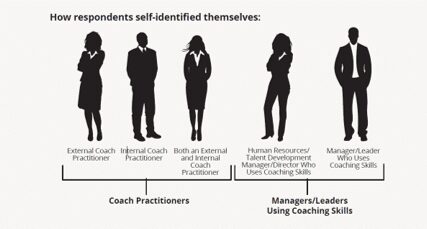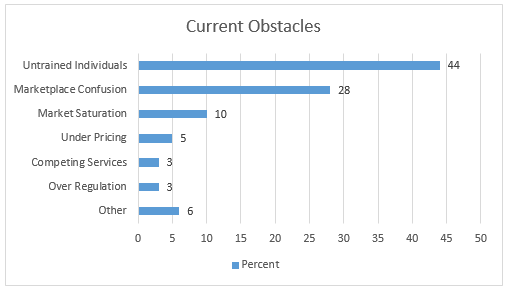
As we’ve discussed in previous articles – there is a lot more to success in coaching than excellent coaching skills. This month we will pull the curtain back on The Business of Coaching taking a close look at the biggest challenges faced by coaching practitioners and strategies for overcoming these potential roadblocks. This pertains to coaching practitioners both external (Solopreneur) and internal (working within an organization) as well as those who have blended the two.
To get a well-rounded picture of coaching challenges I have pulled a few stats from the 2016 ICF Global Coaching Study.
Insights from the 2016 ICF Global Coaching Study
The study was commissioned in 2015 by the International Coach Federation (ICF) and undertaken by PricewaterhouseCoopers. There were 15,380 valid survey responses from 137 countries. Following are a few interesting stats from this study about the business of coaching.
- The coaching industry has evolved into a coaching continuum that includes internal and external coach practitioners as well as managers/leaders who use coaching skills in the workplace. An individual may exist on multiple points along the continuum.

- It is estimated that there are 53,300 professional coach practitioners worldwide. Western Europe accounts for the largest share (35%), followed closely by North America, with an estimated 33% share.
- Average annual revenue of coach practitioners is $51,000. In North America, the average is $61,900.
- The estimated global total revenue from coaching in 2015 was $2.356 billion USD, representing a 19% increase over the 2011 estimate.
When asked to identify the biggest obstacle for coaching over the next 12 months, the main concern expressed by coach practitioners was untrained individuals who call themselves coaches. The chart below presents the percent of respondents who named a particular obstacle.

Respondents were also asked about future opportunities. Increased Awareness of the Benefits of coaching was the top response. Additional responses, expressed as a percent of respondents who mentioned a particular opportunity, are presented below.

Strategies to Overcome Challenges
The top obstacles and opportunities can be used in developing your strategies for success. Set yourself apart by getting quality training and then make sure everyone knows about your education, training and credentials. Capitalize on the increased awareness that coaching works. Cite the literature and develop your own case studies that provide real world examples of how coaching is making a difference.
To learn more about The Business of Coaching register for our next free webinar or download our Making it as a Coach Guide.


